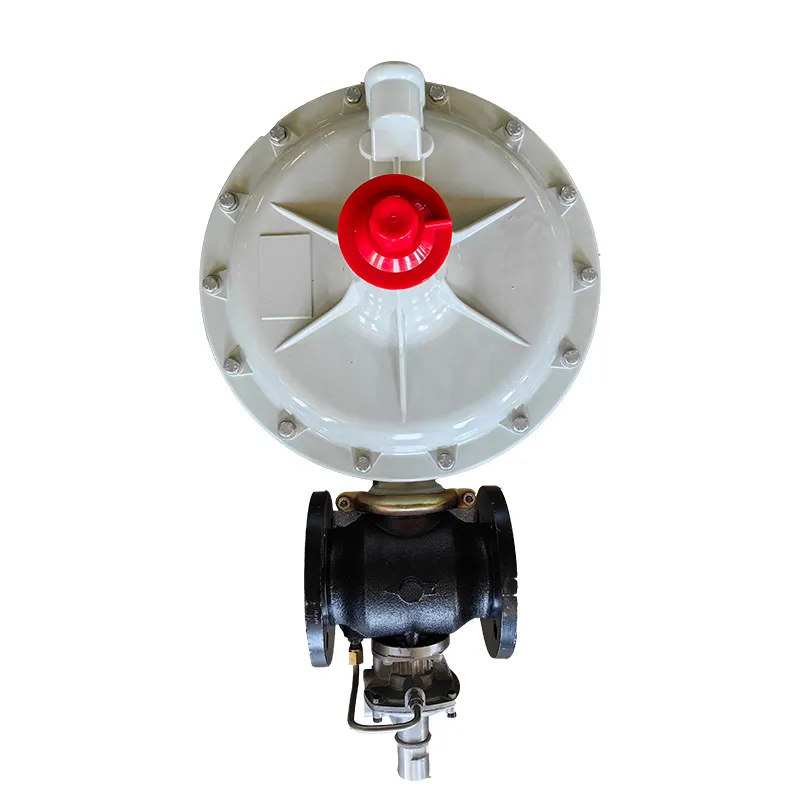
Dec . 04, 2024 09:25
Back to list
gas safety valve
Gas Safety Valve A Critical Component for Safe Operations
In various industries that rely on gas as a source of energy, ensuring the safety of operations is paramount. One of the key components that contribute to this safety is the gas safety valve. This valve plays a critical role in managing gas pressure and preventing hazardous situations. Understanding its function, types, applications, and maintenance is essential for organizations that utilize gas systems.
What is a Gas Safety Valve?
A gas safety valve is a mechanical device designed to control the pressure within gas systems. Its primary function is to prevent overpressure, which can lead to catastrophic failures, explosions, or leaks. When the pressure in the system exceeds a predetermined limit, the safety valve automatically opens to relieve excess pressure, allowing gas to escape safely into the atmosphere or redirecting it to a designated vent. This failsafe mechanism is vital for maintaining safe operational conditions in various environments, including industrial plants, residential systems, and commercial kitchens.
Types of Gas Safety Valves
There are several types of gas safety valves, each serving specific purposes based on the application and requirements of the system
1. Relief Valves These valves open automatically when the pressure exceeds a set limit. They are often used in gas storage tanks and pipelines to maintain safety by venting excess pressure.
2. Blow-off Valves Designed to release gas in emergency situations, blow-off valves provide an additional layer of safety. They are activated by extreme pressure conditions, ensuring that pressure within the system is regulated.
3. Electronic Safety Valves These modern devices utilize sensors and electronic controls to monitor pressure continuously. They offer precise control and can automatically shut off gas flow if unsafe pressure levels are detected.
Applications of Gas Safety Valves
Gas safety valves are utilized in a wide array of applications across different industries. They are crucial in
- Industrial Manufacturing In manufacturing facilities where gas is used for heating, powering machinery, or in chemical processes, safety valves are essential for safeguarding operations.
gas safety valve

- Residential Heating Systems Home heating systems often rely on gas safety valves to prevent dangerous pressure buildups that can result from boiler malfunctions.
- Commercial Kitchens Gas safety valves are integral in commercial kitchens, where gas is used for cooking. They help prevent incidents caused by overpressure from gas lines and equipment.
- Oil and Gas Industry In the oil and gas sector, safety valves are indispensable to protect against pressure fluctuations in drilling and refining processes.
Maintenance of Gas Safety Valves
Proper maintenance of gas safety valves is essential to ensure their reliable performance. Here are key steps involved in maintenance
1. Regular Inspection Safety valves should be inspected regularly to check for signs of wear, corrosion, or damage. Visual inspections can help identify any potential issues before they pose a safety risk.
2. Testing Routine testing is vital to ensure that safety valves are functioning correctly. This may involve simulating pressure conditions to confirm that the valve responds appropriately.
3. Cleaning Dust, debris, and contaminants can hinder the performance of safety valves. Regular cleaning helps maintain their integrity and efficiency.
4. Documentation Keeping detailed records of inspections, tests, and maintenance activities is crucial for compliance with safety regulations and for identifying trends in valve performance over time.
Conclusion
Gas safety valves are an indispensable element in any system that utilizes gas. Their ability to prevent overpressure and mitigate the risk of hazardous events makes them a critical component in maintaining safety across various applications. By understanding their function, types, applications, and maintenance requirements, organizations can enhance their safety protocols and ensure the well-being of their operations and personnel. As industries continue to evolve and expand their use of gas, the importance of reliable and efficient gas safety valves cannot be overstated. Ensuring their proper operation is not just a regulatory obligation; it is a fundamental aspect of responsible operational management.
Next:
Latest news
-
Safety Valve Spring-Loaded Design Overpressure ProtectionNewsJul.25,2025
-
Precision Voltage Regulator AC5 Accuracy Grade PerformanceNewsJul.25,2025
-
Natural Gas Pressure Regulating Skid Industrial Pipeline ApplicationsNewsJul.25,2025
-
Natural Gas Filter Stainless Steel Mesh Element DesignNewsJul.25,2025
-
Gas Pressure Regulator Valve Direct-Acting Spring-Loaded DesignNewsJul.25,2025
-
Decompression Equipment Multi-Stage Heat Exchange System DesignNewsJul.25,2025

